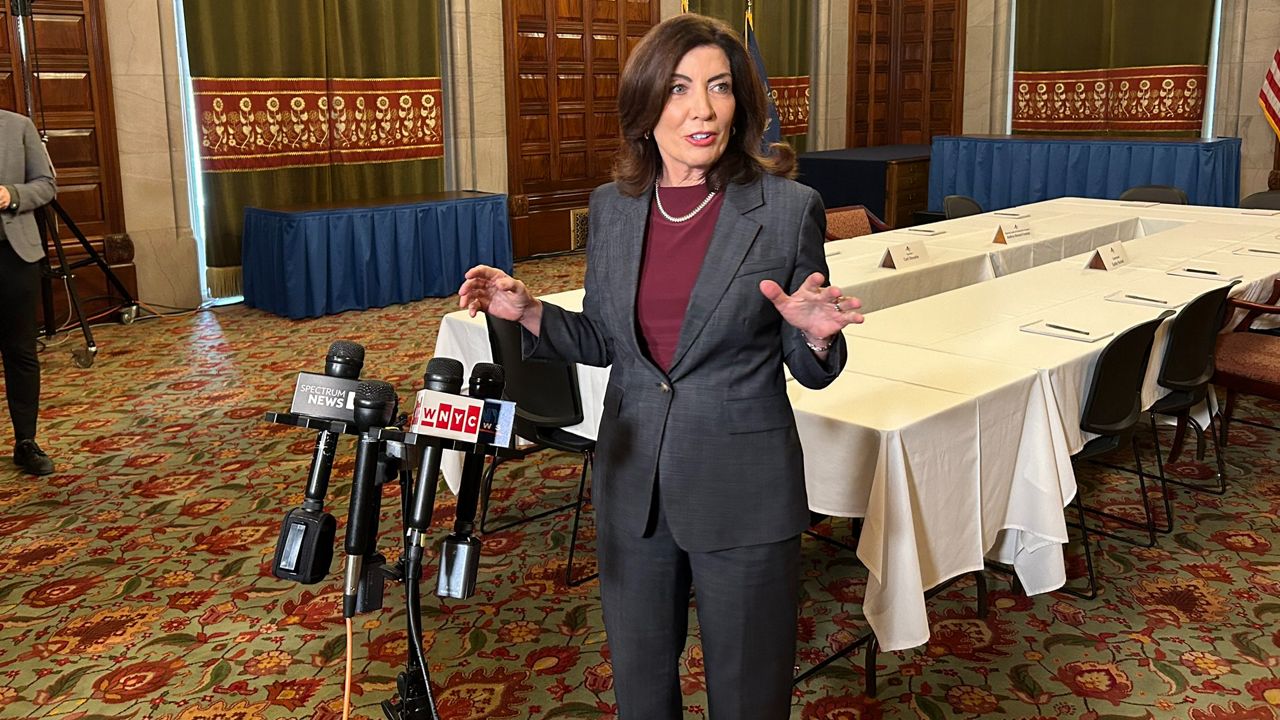New York has a "conceptual" budget deal, as announced by Gov. Kathy Hochul on Thursday.
But what exactly does that mean?
Hochul on Thursday announced the broadstrokes agreeement on top-line issues in the state budget: New York's minimum wage will reach $17 an hour in the coming years and then be indexed to inflation, the state's bail law will change, schools will see more than $34 billion spending and New York will soon require newly constructed buildings and homes to not use natural gas hookups.
The specifics — and the precise bill language for how the whole budget will work — are yet to be spelled out.
"This is tradition," Hochul said on Friday in Syracuse after appearing at an event touting chip manufacturing in Central New York. "They normally call it a handshake agreement."
Nine of the 10 budget bills are yet to be printed and introduced, but Hochul is confident top lawmakers are on board even as Democratic members of the state Assembly will meet at least one more time in a closed-door conference to discuss specifics.
"I spoke to the leaders," Hochul said. "It's been a very strong, respectful relationship as they bring the needs of their members to me and we work through this."
The governor was similarly confident the Legislature would vote on the budget next week.
Having a deal announced without bills on hand is not unusual. Big ideas are often agreed to among legislative leaders and the governor, with a team of staffers working out the legal language.
There is some quiet grumbling, however, from lawmakers that a tenative deal could still fall apart this weekend as legislators return to their districts and speak with advocates and constituents about the budget.
Budget watchdogs, meanwhile, are also eager to review the details of the fiscal side of the budget. The back-of-the-envelope numbers unveiled Thursday by the governor — $229 billion in combined state and federal spending — barely skimmed the surface of understanding New York's financial picture like structure budget gaps, said the group's president, Andrew Rein.
"The governor did not mention any effort to restrain spending so that it can be supported by recurring receipts; this is discouraging. However, she reported that her plan to increase reserves is included, which is positive," he said. "The state should publish basic financial plan tables with the final agreement in the next few days to provide New Yorkers the information they need to understand how the State plans to spend and afford their $229 billion."



